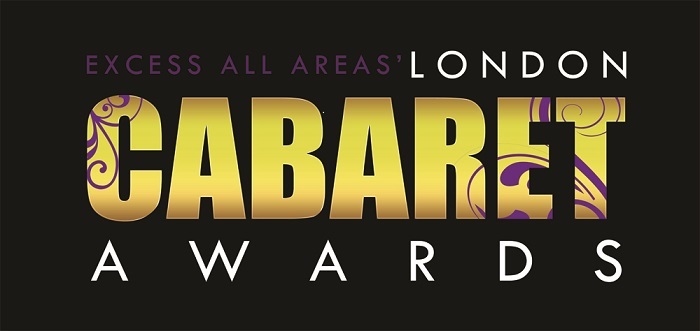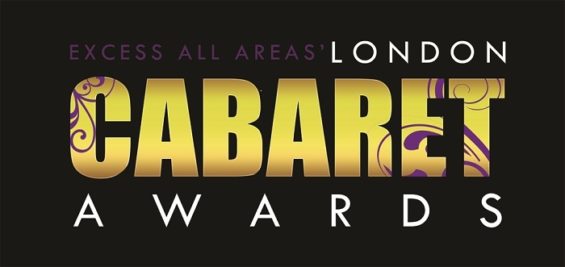Now in its fourth year, the London Cabaret Awards has released the latest longlist of nominees.
We’ve already discussed what we’ve found in some way good about the 2015 longlist. While we congratulate each and every one of the nominees, there is much at a general level about the judges’ choices that is either questionable or downright lamentable.
The Bad
Circles In Square Boxes…
At times, we wonder if this year’s judges knew what they were looking at. For example, can they tell the difference between a speciality act and a variety show? Or between a burlesque dancer and a singing host who keeps her clothes on? On the evidence of this year’s longlist, the answer is an emphatic no. We’ll cover the specifics of these cases in the next article but of greater concern here is that occasional spells of befuddlement have led to a wider mislabelling of entire swathes of the scene that the LCA seeks to champion.
What do a ballet dancer, an East End drag legend, a burlesquing sex campaigner and a musical comedy pair have in common? Answer: nothing much apart from that fact that one of them could win the Best Alternative Performer prize. What cockamamie definition of “alternative” were the judges using this year? And which cabaret act is not in some way an alternative to something?
Why not merge that category with Best Circus/Speciality Act (another category with an identity crisis) and call it the “Best Miscellaneous Act We Kind Of Liked The Look Of”?
Let’s be clear: the categories and their definition are the responsibility of the judges so the buck stops with them. None of the current batch seem to have a background in circus or sideshow and we question their credentials in assessing nominees in the above categories. As in previous years, we ask that a category is dedicated to circus, a highly technical genre which is badly served by the media in general. This year, we suggest that – should they lack an expert in their ranks – future panels make use of the advice of specialist critics to get unbiased and informed opinions where required. Or risk looking like idiots again. Them’s the choices.
…Or No Boxes At All
Not all cabaret happens in a traditional cabaret night or a cabaret venue and there should be some recognition for the best use of variety outside of its traditional context.
Many promoters and places now include variety turns within a wider offering with their shows acting as a form of gateway drug to the harder stuff found in out-and-out cabaret shows. It is something we call “adapted cabaret” and railed about almost two years ago.
Brunchclubs like Bacanal sandwich burlesque and circus between courses of food and hours of hardcore raving. The SS Atlantica features burlesque and ukulele turns as it travels up and down the Thames. Meanwhile White Mischief, Rumpus, Curious Invitation, Belle Epoque and Guerrilla Zoo all include a strong variety element as part of their themed evenings. These days, people can even take in variety acts while watching rounds of Mexican wrestling or chessboxing, crafting some jewellery or having a game of bowls.
Other shows ask performers to go beyond their usual job description, for example drawing salons like Dr Sketchy’s and Art Macabre, or literature nights like Velvet Tongue and Naked Boys (and Girls) Reading.
The omission of any of these shows and their ilk from the 2015 longlist is another indicator of the judges’ narrow focus this year. If the awards really are there to “congratulate those involved in some of its best work and to champion that work”, next year’s panel should consider spending some time off the well-beaten path and explore how venues and promoters are making creative use of cabaret.
Dragged Down
London’s thriving drag scene seems to have fallen almost completely beneath the judges’ radar this year.
One cracking example is The Black Cap’s Meth Lab. Produced by the eponymous statuesque performer, it is a new homegrown show which regularly brings world-famous drag queens of the stature of Sharon Needles to a small venue on Camden High Street.
Of the ten nominees for Best Cabaret Venue, none are renowned for their drag shows. Cellar Door hold weekly drag events but offer a wide variety of cabaret on other nights. Apparently, the judges thought far less of the ex-LCA winning Royal Vauxhall Tavern, the Black Cap and the late Madame Jojo’s than they did of Hoxton Hall, a venue which has been closed since January 2014.
Watching the nominated television series Drag Queens of London and its stars Baga Chipz, Sheila Simmonds, Silver Summers, The Very Miss Dusty O, Lilly Snatchdragon and Miss Rosie Beaver (all of whom have been nominated at least once) may make for a quiet night in but the best drag performances this year were on stage not London Live.
Longlists Should Be Long Lists
Considering that the panel have been “specifically chosen for their breadth of knowledge”, how hard would it have been for them to find the standard ten nominees for each section as previous judges have? Of the 11 categories, four come up a little short.
The longlist for the Best One-off Production stretches to all of seven shows (six of which are in the songbook genre). Best Musical Variety Act also only has seven names while the judges felt that there were only nine comperes and nine newcomers worth a mention.
We’re not suggesting that nominations should be made for the sake of nominations but, with most cabaret shows and acts having no marketing budget to speak of, we’d bet the house that they would appreciate a mention even if they ultimately only have an outside chance of winning.
All The Internet’s A Stage
More and more performers are taking matters into their own hands and reaching new audiences through the internet. Through the web, every genre of cabaret has created unique and online-only new art which explores their world.
In her Vaudeville Broadcast, Rosie Kohl speaks at length to performers, producers and superfans; she also exclusively recorded the panel discussion at this year’s London Cabaret Convention. On Instagram, singer and occasional film critic Le Gateau Chocolat and shameless boylesque dancer Phil Ingud are must-follows.
Self-styled “international burlesque coach to the stars” Trudy Lite is 96 episodes into her YouTube comedy advice series and you can find RVT regular Charlie Hides’ hilarious pop satires there too. Marcus Reeves’ interview series Behind The Mask started on YouTube and became a live show at the Mimetic Festival this year.
Mister Meredith and Mat Ricardo write outspoken and thoughtful blogs on which they opine about current cabaret affairs. Burlesquer Aurora Galore’s blog extensively documents her world through images, videos and words. Meanwhile, Twitter is the place to go to for witty banter from character comedians like Marcel Lucont and EastEnd Cabaret’s Bernadette Byrne and Victor/Victoria.
Given the riches and speed of growth in cabaret’s digital landscape, it is a mystery to us why the judges have almost completely ignored the digital side of cabaret (Ben Walters’ marvellous blog NotTelevision.net aside). We said almost two years ago, if onstage creativity is worthy of recognition then the same should apply to offstage endeavours too.
The awards need a new category to recognise digital efforts. And, you know what? We feel so strongly about this that we’d be happy to sponsor this category.
Watch out for Part 3 on Friday, when we cover a few of the utterly bizarre nominations from this year’s longlist.




Recent Comments